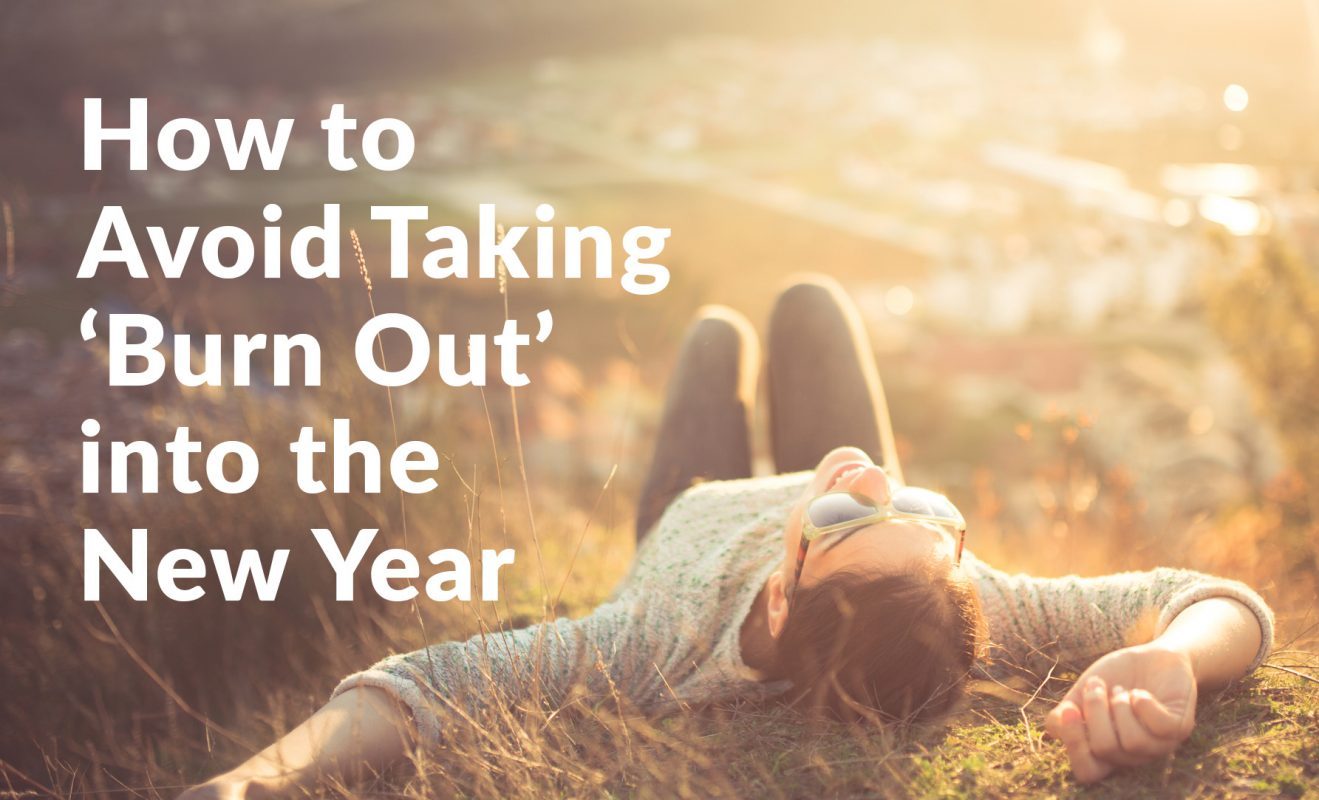Calm Mind Clear Skin
How to Avoid Taking ‘Burn Out’ into the New Year with You
It’s natural for us to want a ‘fresh start’ at the beginning of a New Year.
We create new dreams and goals… but when we’re already feeling stressed and ‘burnt out’ from the previous year, these goals can be harder to achieve.
Stress reduces our ability to digest food properly and get to sleep at a reasonable hour.
It increases inflammation in the body and reduces immune function.
Stress also plays havoc with our hormones, fertility and blood sugar regulation.
…and it can activate immune cells in the skin, leading to inflamed skin and skin issues like acne, eczema and psoriasis.
In this blog post, we’ll take a look at how we can set ourselves up to make some simple little tweaks to our lifestyle over this next year.
Tweaks that can help reduce the effects of stress on our mind, body and skin… and give us the best chance of reaching our goals.
#1. Put rest and relaxation first
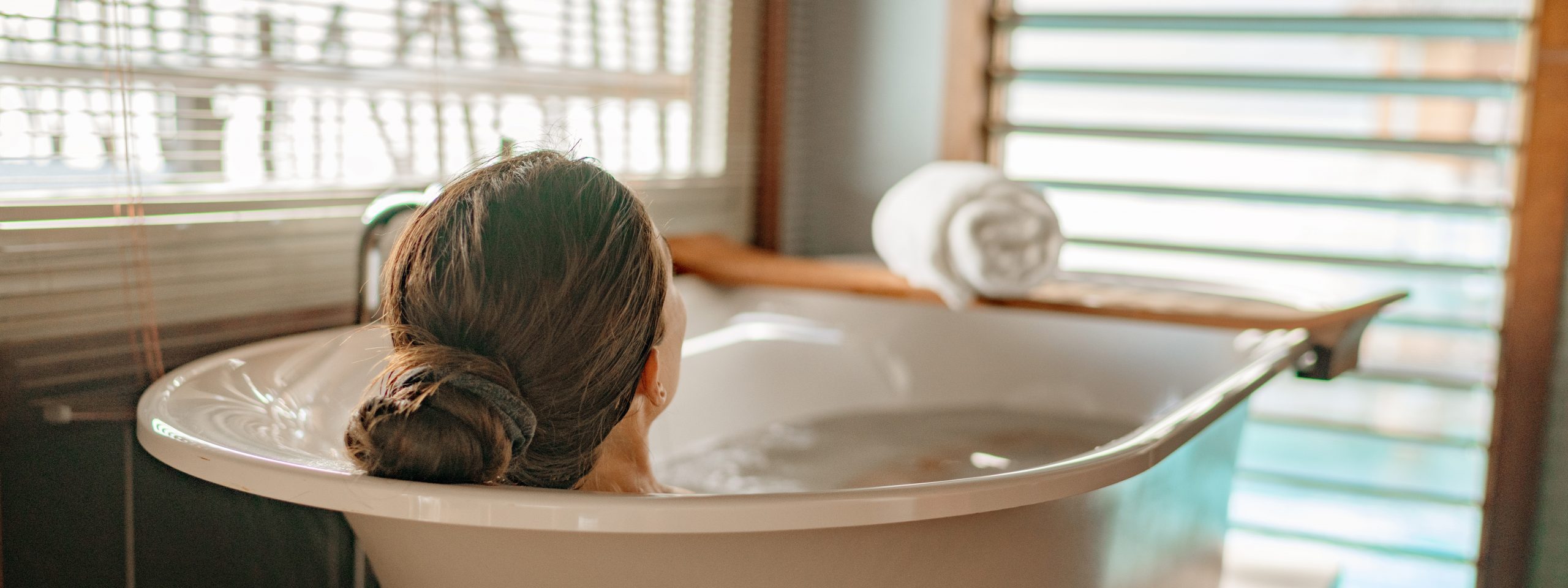
“If you are depressed you are living in the past. If you are anxious you are living in the future. If you are at peace you are living in the present”
~ Lao Tzu
Making sure that we take time out for ourselves to rest and rejuvenate is super important.
This past year in particular has been very trying on everyone’s nervous systems.
And a lot of us are feeling tired and ‘burnt out’
Stress is a contributing factor to pretty much every disease state, including:
- Heart disease,
- Obesity,
- Depression and anxiety,
- IBS,
- Autoimmune conditions,
- Accelerated ageing
- Eczema, psoriasis, rosacea and acne
…so it’s important that we take time out now and then for some rest and relaxation.
If we don’t give time for ourselves to rest, then our body will force us to rest by getting sick…
This is why prioritising rest and relaxation is super important.
Try:
- Making time for those things that help you unwind. This might be getting a massage, having a bath, getting creative in the kitchen, reading a book, gardening, reading a book, going for a walk with a friend…
- Scheduling those ‘unwind’ activities into your diary, planner or day in the same way you would an appointment
- Savouring every sip of your tea or coffee in the morning without the distraction of your phone
- Journalling. Reflect on each day and write down 3 things you are grateful for today.
Get into the habit of acknowledging what you already have, rather than what you don’t.
This will help you appreciate the little things in life - Taking time away from social media. You can’t live your own life if you are busy looking at others
- Being mindful when eating. Focus on each bite you take, how it smells, what it tastes like, how it feels in your mouth.
Avoid scrolling through your phone, watching T.V, or running around getting ready while you’re eating.
When you eat mindfully, your body is better able to break down and absorb the nutrients in food
#2. Move your Body
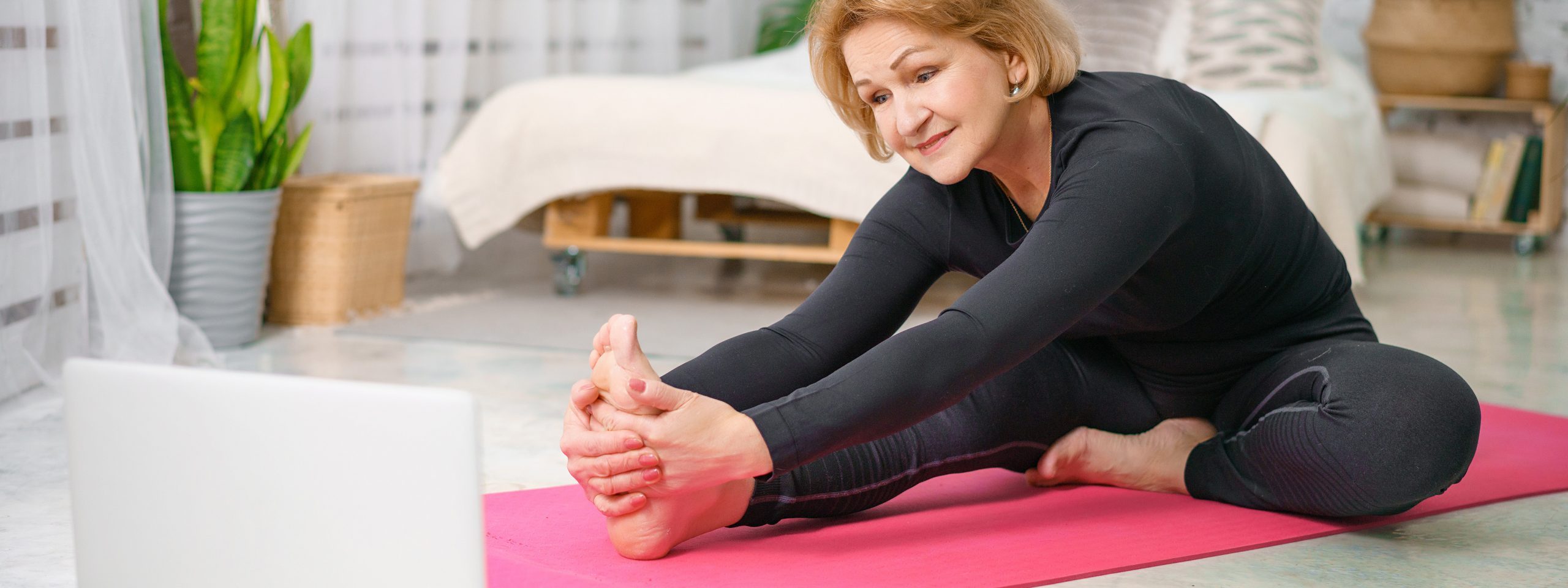
We know regular exercise can strengthen our muscles, heart and lungs, but exercise also…
- Reduces our risk of chronic disease
- Improves mental clarity
- Stimulates the growth of new cells in the body (hello anti-ageing)
- Increases blood flow which helps bring nutrients to the surface of our skin (hello healthy glow)
Exercise in any form can act as a stress reliever.
This helps to increase our ‘feel good’ hormones and melts away those daily worries.
Studies show that just 30 minutes of physical activity on most days is all that’s required to get big benefits.
And exercise doesn’t have to be a chore…
Find exercises that suit your body and that you enjoy. It shouldn’t be a source of extra stress to your life.
Try:
- Walking with a friend
- Going for a swim in the bay or local pool
- Dancing (professionally or just free styling in your living room)
- Running, cycling or rollerblading
- Going to a Pilates or Yoga class or following along with an online video or app
- Lifting weights or swinging kettlebells at home or your local gym
- Kickboxing with a trainer or heading to a kickboxing class
#3. Get a good nights sleep

Getting a good night’s sleep is super important for both our physical and mental health.
Sleep helps:
- Improve mood
- Reduce stress and tension
- Maintain a healthy weight
- Promote blood flow to the skin (say goodbye to dull skin)
- Help with wound healing
- Support immune function
- Improve memory and concentration
- As well as helping prevent a number of health related diseases
You can’t go out and ‘take on the world’ if you’re dragging your feet and eye lids from not enough sleep!
Try:
- Having regular sleep times. This means going to sleep and waking up around the same time every day, even on the weekends. You can’t really ‘catch up on sleep’
- Making sure that your bed and bedroom are quiet and comfortable. A cool room with enough blankets is good. Have black out curtains or an eye mask for the sun and earplugs if it’s noisy outside your room
- Creating your own sleeping ritual. This might include… drinking a calming tea, doing stretches or breathing exercises before bed
- Going straight to bed when you’re sleepy. Many people either want to finish that last chapter of their book or finish washing those last dishes before bed. But when we do this, we can miss our ‘sleep window’ leaving us feeling wide awake by the time we actually get to bed
- If you can’t sleep after 20 mins, get up again and do something boring (not something that’s productive – so no cleaning)
- Keeping your bed space only for sleeping. Try not to eat, watch T.V, read or work on your laptop on your bed
- Avoiding caffeine, alcohol & nicotine at least 4-6 hours before sleep
#4. Form a Meditation habit
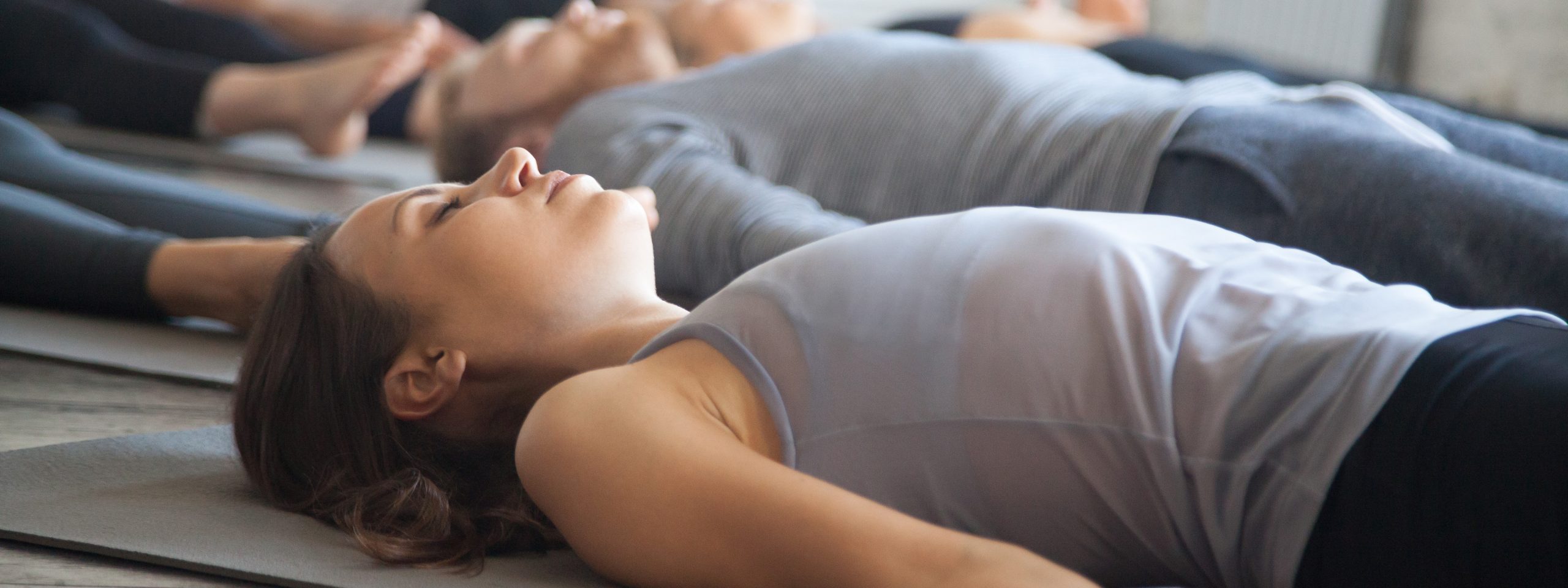
When I suggest meditation to clients, I can see the look of dread in their face and I know they’re thinking…
“…how could I possibly sit still?”
“…how could I not have any thoughts go through my head?”
“…do I have to listen to monks chanting?”
But it doesn’t have to be difficult or a ‘big thing’.
You can start with meditating for as little as 2 minutes a day
It’s just about taking a little bit of time out of the day to calm the mind.
Try this simple step by step guide to start practising meditation:
- Set a clear intention. What are you wanting from this meditation? To start off the day fresh? To relax before bed? To give the thoughts in your head a rest?
- Reduce excuses and distractions. This might mean turning off the technology. Going to the bathroom before you sit down. You might find headphones or ear plugs handy to block out noise
- Find a comfortable position. This could be sitting in a chair or cross-legged on the floor. Then rest your hands on your knees
- Keep a tall spine. Inhale, roll the shoulders up to your ears. Exhale and roll them back and down
- Gently close your eyes
- Start with a few deep breaths. Breathe right into your belly, and exhale completely. Then get into a normal breathing pattern.
- Follow the breath in and out.
It may seem easy, but the mind often wanders to other thoughts.
When you realise your mind has wandered, just refocus yourself back onto your breathing - Give it time. Meditation takes time and practice. If you need to move, move. If your mind wanders thats okay, just always bring yourself back to your breathing. Just 5 min of practicing meditation every day can make all the difference
If you find this hard, try:
- A humming meditation or using a mantra,
- Mindful colouring,
- A meditation of sound rather than breathe – it’s simply paying attention to all of the different sounds around you
- Listening to a ‘body scan’ meditation recording before bed, or
- Even something as simple as singing to your radio in the car
#5. Get into Nature
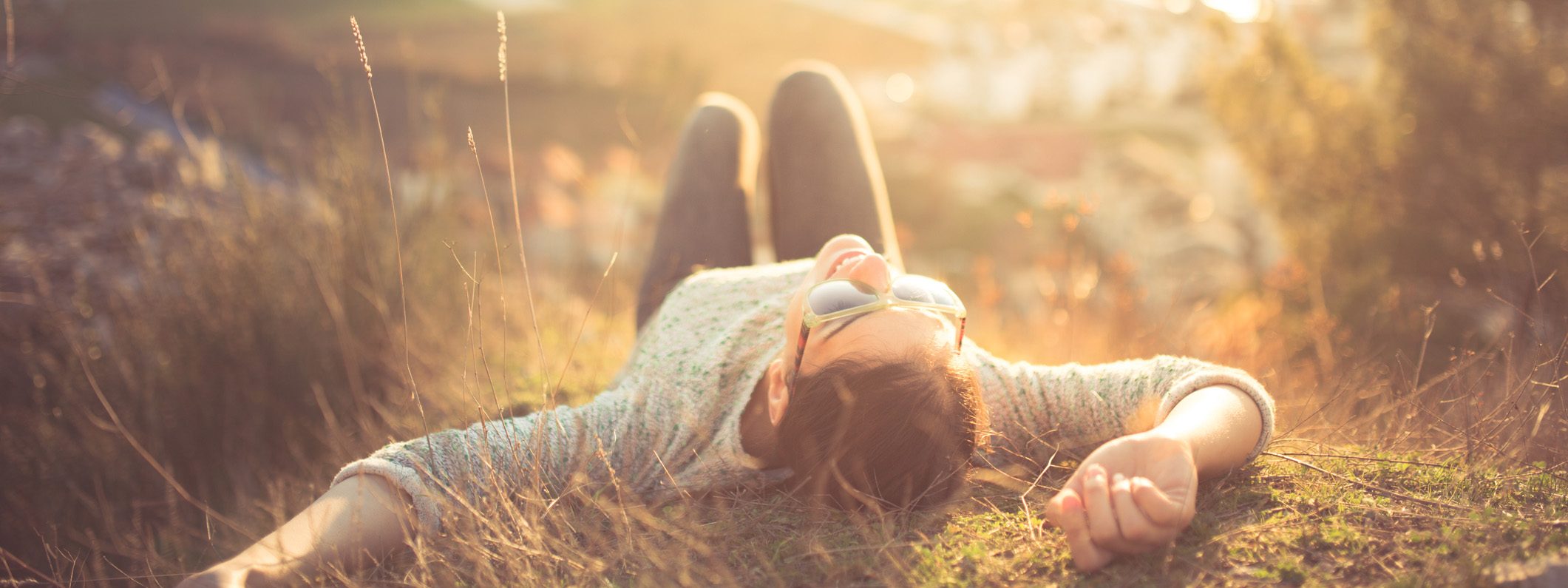
Being in nature is extremely powerful.
Smelling the fresh air, listening to the birds sing, feeling the sun warm our face.
We’re all a part of a beautiful ecosystem, we should give ourselves time to appreciate it.
There are many benefits of being in nature. It can help….
- Boost energy
- Improve memory & concentration
- Reduce stress and promote feelings of happiness
- Improve sleep
- Boost vitamin D status
Try:
- Putting your feet in the sand at the beach
- Swimming in the ocean
- Walking in the bush
- Getting your hands dirty in the garden
- Just sitting under a tree
- Seeing the beauty in the everyday things that surround you. Observing the sky, the grass growing, the birds flying, the moon shining, the flowers blooming, the dog barking, the man walking – everything
If you start to see the world, you start to appreciate how truely amazing it is.
Then you’ll want to appreciate every day on this amazing planet
Setting ourselves up with some simple little tweaks to our lifestyle, is a great first step to help reduce the effects of stress on our mind, body and skin.
By prioritising activities that reduce stress and tension, we’re giving ourselves the best chance of achieving all of our new dreams and goals for the new year.
But please don’t feel like you have to try out all of these suggestions at once …that’s a recipe for failure.
Pick 1 or 2 to try first. You’ll probably have to tweak them as you go to make them work for you.
Our New Years goals can often include changes to our diet and food choices.
But what we eat shouldn’t be another stress in our lives…
So in the next blog post… we’ll talk about some simple and realistic additions to what we’re eating that can support our New Years goals!
Wishing you silky smooth skin!

